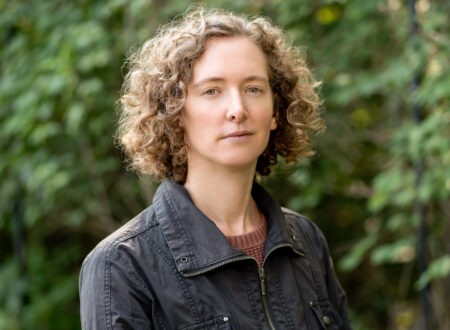When children have special needs, it takes extra care to ensure they have access to a proper education. This is a challenge for any child. But for First Nations children, the barriers are even greater.
Study after study has shown that First Nations children are not getting access to the same quality and range of special education as other children. And if they are offered access, too often it is outside of their home community, culture and language.
A recent report issued by First Nations in Ontario provides a strong set of recommendations to address this. The Ontario First Nations Special Education Review Report was released on May 30, 2017. Chaired by Peter Garrow, the Review team involved numerous contributors involved in First Nations education. It makes 27 recommendations.
While the report focuses on Ontario, its recommendations will be useful reading to anyone interested in First Nations education in Canada.
Among other things, it recommends an overhaul of federal funding, to end the current “arbitrary and capped” formulas. “A new model is needed that is bottom-up, holistic, uncapped, flexible, eligible for carry-over between years, and indexed,” the report recommends. “A binding legal guarantee of adequate and equitable funding is critical to ensuring funding adequacy.”
It also directs a number of recommendations to the province, including a cap on the fees that school boards can charge First Nations in their tuition agreements, and a guarantee that First Nations students will have equal access to services.
Two thirds of the First Nations children who live on reserve in Ontario attend a school on their reserve. Those schools are run by First Nations and are federally funded – and by that, we mean seriously underfunded. The other third of children living on reserve, plus the First Nations children who live off reserve, go to provincial schools. Those schools are run by a school board under provincial rules and with provincial funding. In the provincial system, school boards can charge fees to the First Nation when an on-reserve child is attending the off-reserve school. The First Nation often does not receive sufficient federal funding to pay for these fees, especially if additional amounts are charged for special needs.
The Ontario First Nations Special Education Review Report came out of a human rights complaint process. Two students at Mississaugas of New Credit First Nation were refused federal funding for their special education needs.
Meanwhile, last year First Nations won a national human rights complaint about discriminatory funding in child welfare services. That case left no doubt that First Nations have the right to equally good services. And, moreover, First Nations have the right to services that are culturally appropriate, close the gaps in outcomes, and address intergenerational traumatic legacies like Residential Schools. This is called substantive equality.
In that case, the Canadian Human Rights Tribunal has just recently issued a follow-up ruling ordering Canada to comply with Jordan’s Principle. Jordan’s Principle requires that First Nations children have access to the services available to other children, without delay. It is not limited to health (i.e. it can apply to special education), and it is not limited to First Nations children with disabilities. It applies to all First Nations children, on and off reserve.
If Canada is going to comply with Jordan’s Principle, as required by this legal ruling, special education is an area that needs close and urgent attention. The recommendations in this Ontario report are a good place to start.
By Judith Rae
Related Posts

OKT Podcast - Overview of the Reference on Bill C-92
Tuesday, February 20, 2024
We are excited to introduce the inaugural episode of the OKT podcast!
In this debut installment, Jesse Abell, Krista Nerland, and Judith Rae discuss the intricacies…
Read More...
Five Years of C-92: Progress Made and the Road Ahead for Indigenous Jurisdiction in Child and Family Services
Tuesday, April 22, 2025
An Act respecting First Nations, Inuit and Métis children, youth and families came into force over five years ago on January 1, 2020. It is frequently…
Read More...
First Nations: Did some of your members go to residential school?
UPDATED DEADLINE: JUNE 30, 2022
First Nations: Did some of your members go to residential school?
If yes, there is a class action underway now that may apply to you,…
Read More...

